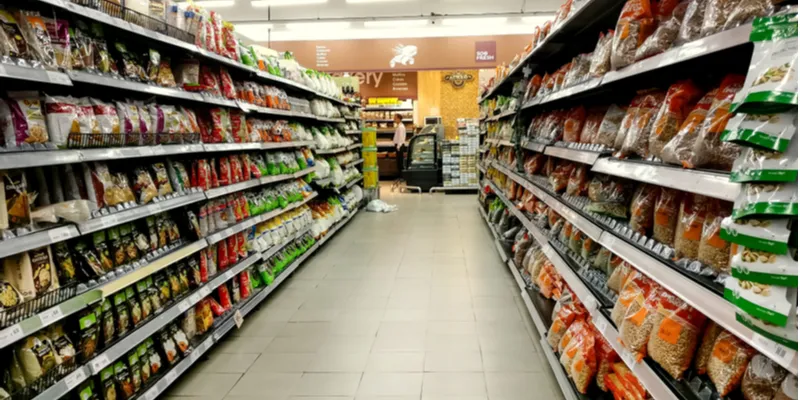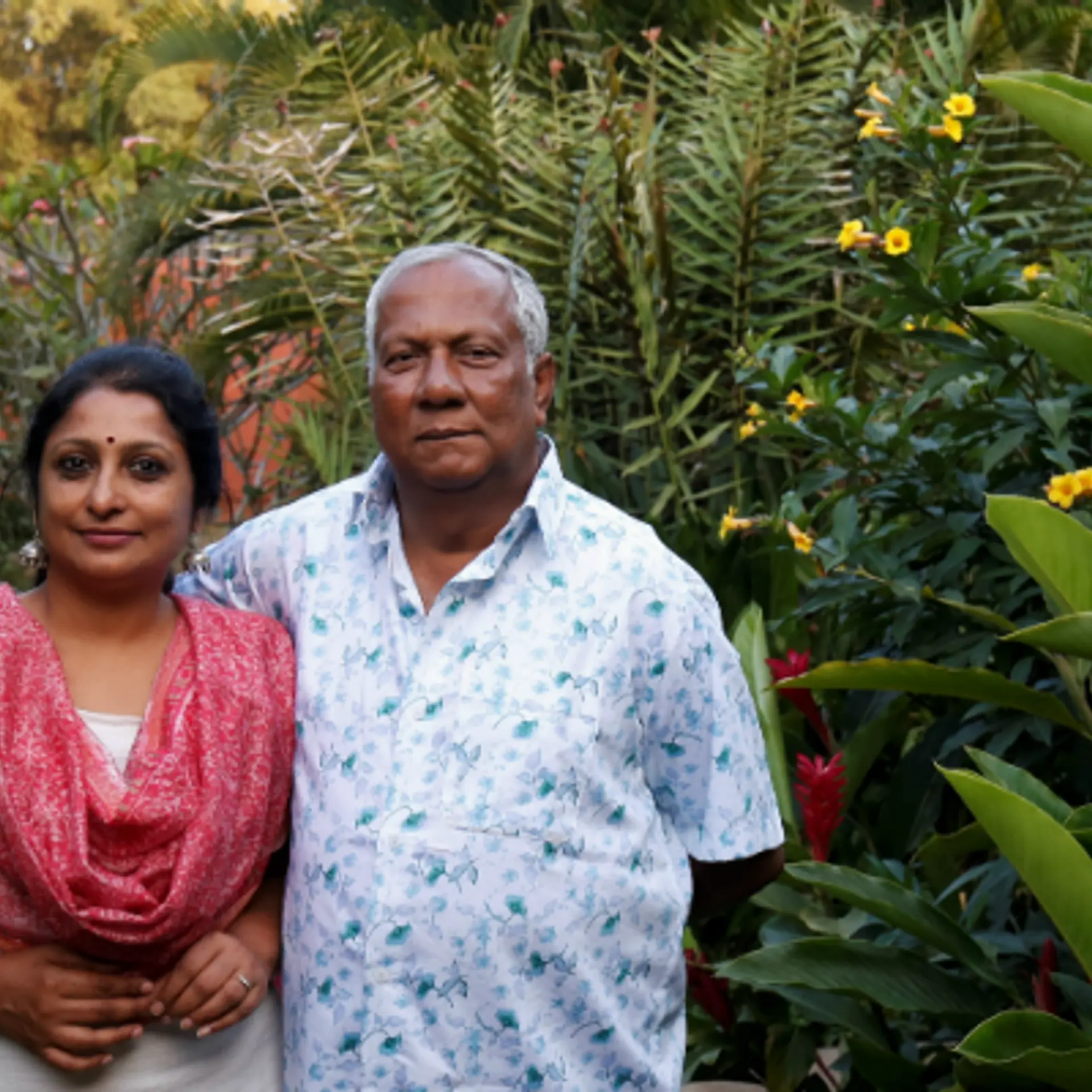Started as a small grocery shop, how Pansari Group is now exporting to 42 countries
Started as ‘pansari ki dukaan’ in the 1940s, Delhi-based Pansari Group today has grown into a multi-crore business group that has a strong presence across manufacturing and selling edible oils and other food products in India and abroad.
Shammi Agarwal’s great grandfather ran a small grocery shop called ‘pansari ki dukaan’ (grocery shop) in Delhi in the 1940s. Thereafter, his grandfather, Gokul Chand Agarwal, further expanded the business by venturing into wholesale trading of edible oils.
This started the journey of .
Later, in 1962, Shammi’s grandfather even set up an oil refinery in West Bengal which produced 180-200 tons of vegetable oil every day under Pansari Industries.
The 1990s was an important decade when Pansari Group was transitioning from trading to manufacturing. Between the 1990s and 2005, the company set up about seven units spread across northern India.
Today, the group has grown into a sizable player in the market. It manufactures and sells till oil, soya oil, refined oil, mustard oil, and more in India and abroad.
While competing with players such as BL Agro, Ruchi Soya Industries, Gokul Refoils, Anik Industries, Fortune and several more, Pansari Group claims to have a market share of more than 17 percent in the Delhi-NCR region. It is present across all states in north India.
Shammi also adds that it sells a few products for the south Indian market as well. For instance, rice sells in Andhra Pradesh and Telangana as it is majorly a “Biryani market.” Gunpowder and dosa mixes were also developed to be sold in this market.
Moreover, Pansari Group is also present in 42 countries, including the UK, the US, Canada, Australia, Singapore, etc.
Evolution of the business
Shammi joined the business in 2010 after completing his MBA. He says that one of the first things he did after joining the business was to make the workforce professional. “Initially, we gave a lot of weight to references while hiring people. But after I joined, we started considering factors like educational qualifications more seriously.”
Apart from this, Shammi says that after he entered the business, they started concentrating on branding.
Furthermore, Shammi has highlighted that starting from edible oils, the company diversified to manufacturing and selling products like rice, flour, etc.
Citing the reason behind this, Shammi says, “The customer wants everything in one place. Therefore, we diversified into other categories to become a one-stop solution for all grocery needs of a person.”
In 2008, the Pansari Group ventured into different verticals such as real estate, teak plantation, energy, and more.
Shammi explains that the company has managed to stay relevant over the years because its motto is to “keep changing and keep innovating.” The group’s combined turnover for FY20 was Rs 891 crore according to their claims.

Pansari Group claims to have a market share of more than 17 percent in the Delhi-NCR region.
Grabbing a pie of the global market
Pansari Group forayed into the international market in 2018, stepping into countries such as the UK, the US, Canada, and other parts of the world.
Telling why the company took time to go global, Shammi explains, “For a long time, we were jobbers for bigger oil companies. Additionally, the previous generation was more focused on developing products for the domestic market and didn’t focus much on the international one.”
He also adds that Indian products are a hit in the global market because of several reasons. First, he says, “Indian diaspora prefer only Indian products.”
Secondly, there isn’t a lot of local competition in international markets. “For instance, if we talk about rice in Australia, it will only come from either India or Pakistan,” Shammi explains.
He also points out that Indian spices sell well abroad as “their popularity gives them an edge.”
Becoming aatmanirbhar in the edible oils segment
According to several reports, India is one of the largest producers of oilseeds in the world. However, the country’s import statistics are concerning. According to a report titled ‘Edible Oil Industry Of India – A Brief Overview’, India’s edible oil import bill comes to about Rs 70,000 crore annually.
Shammi says that India imports almost 70 percent of the edible oils. He says that even though the industry is evolving, it will take time for India to become ‘aatmanirbhar’ in this segment.
“The price of mustard seeds has gone up from Rs 40 per kg to Rs 75 per kg in the last few years so that farmers get a better price and produce more. The government has also been taking steps to uplift the ecosystem.”
Recently, Prime Minister Narendra Modi announced that the government will invest Rs 11,000 crore in the edible oils ecosystem.
Next plan of action
Talking about COVID-19, Shammi says the FMCG (Fast Moving Consumer Goods) sector is not as affected as other segments. It faced disruptions because of supply chains going haywire. But all the losses faced in the HoReCa (hotels, restaurants and cafes) industry were made up by digital platforms, including its Pansari Group’s website. Apart from selling through its website, it is also present on ecommerce platforms such as Amazon and Flipkart.
“The second wave was worse because the food was not on people’s agenda; it was oxygen,” Shammi says. While Pansari sells through both offline and online channels, its focus is going to be digital.
He says, “Digital is the need of the hour and we will continue to strengthen our online presence in the coming months.”
He also added that the demand for special flours like ragi atta has grown during the pandemic and this has encouraged the team to experiment and explore new categories. “The pandemic gave people the time and space to try new recipes at home.”
Immunity-based products, syrups, ready-to-make premixes, and more are on the cards and are getting ready to be rolled out as part of the company’s offering in the coming months.
Watch Shammi Agarwal talk about his journey with SMBStory in 2018:
YourStory’s flagship startup-tech and leadership conference will return virtually for its 13th edition on October 25-30, 2021. Sign up for updates on TechSparks or to express your interest in partnerships and speaker opportunities here.
For more on TechSparks 2021, click here.
Applications are now open for Tech30 2021, a list of 30 most promising tech startups from India. Apply or nominate an early-stage startup to become a Tech30 2021 startup here.
Edited by Kanishk Singh









